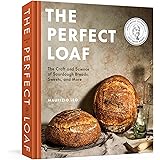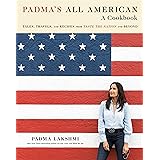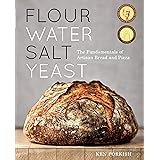The sentiment expressed in the video above resonates deeply within the vegan community, articulating a profound truth that many grapple with daily. It spotlights a particularly acute form of cognitive dissonance experienced by those committed to animal liberation: the realization that the very people we cherish often participate in, and even financially support, systems of exploitation we find abhorrent. This isn’t just about dietary choices; it’s about a fundamental clash of ethical frameworks, presenting a significant emotional burden.
For those dedicated to ethical veganism, this internal conflict can feel like an isolating chasm. It challenges our core understanding of love and compassion when confronted with the stark reality of speciesism ingrained in society. Understanding this pervasive issue, and developing strategies to navigate its complexities, becomes crucial for long-term commitment and emotional well-being within the ethical vegan movement.
The Uncomfortable Truth: Unpacking Speciesism and Personal Relationships
The video’s powerful statement hinges on the concept of “had you been born in a different body,” directly confronting speciesism. Speciesism is the prejudice or discrimination based on species; it’s an arbitrary distinction that grants moral consideration to humans while denying it to other sentient beings. This arbitrary line allows for the enslavement, exploitation, and murder of animals for human consumption, clothing, and entertainment, simply because they are not human.
Consider the analogy of historical prejudices, where characteristics like skin color or gender were once used to justify systemic oppression. These distinctions were morally irrelevant, yet they underpinned societal structures of injustice. Similarly, speciesism posits that species membership itself is a morally relevant factor, even though animals possess capacities for feeling pain, joy, and fear, mirroring many human experiences.
This deep-seated prejudice allows individuals, including our loved ones, to separate their affection for us from their participation in systems that inflict immense suffering on animals. They may genuinely love and care for us, yet simultaneously fund practices that, by our ethical framework, are morally indefensible. The core of ethical veganism challenges this selective empathy, extending compassion beyond species lines.
The Weight of Awareness: Emotional Labor in Ethical Veganism
Living with the awareness of animal exploitation, especially when it implicates those closest to us, creates a unique form of emotional labor for a vegan. This isn’t merely intellectual disagreement; it’s a persistent ache of empathy and frustration. Many ethical vegans describe feeling like they are living in a world where a fundamental injustice is invisible to most, a silent scream unheard.
The cognitive dissonance here operates on multiple levels. For the non-vegan, it allows them to compartmentalize their values, maintaining a belief in kindness and compassion while consuming animal products. For the vegan, this dissonance manifests as a constant tension between love for family/friends and the revulsion at their choices. This internal struggle can lead to feelings of grief, isolation, and moral fatigue.
It’s akin to being a “canary in the coal mine” for a moral awakening, experiencing the toxic fumes of societal speciesism long before others acknowledge their presence. This heightened sensitivity, while a source of profound ethical commitment, can also be incredibly burdensome. Understanding that this emotional weight is a shared experience within the vegan community can provide some solace.
Beyond the Plate: Understanding Exploitation from the Animal’s Perspective
When the video references “enslaved, exploited, and murdered,” it’s not hyperbole from an animal rights perspective; it’s a literal description of the reality for billions of sentient beings. Animals in industrial agriculture are typically denied their most basic natural behaviors and autonomy, effectively enslaved from birth. They are exploited for their bodies and secretions, reduced to commodities in a production line.
Compare this to human chattel slavery, where individuals were legally deemed property and used for labor, their lives dictated by their owners. While distinct in species, the fundamental denial of liberty and bodily autonomy bears a striking resemblance in its inherent injustice. Animals are bred into existence solely to serve human interests, their lives designed for maximum output and minimal cost.
Ultimately, these animals are “murdered” long before their natural lifespan, often in brutal and terrifying conditions, solely for human palate preference or convenience. This isn’t a natural death; it’s a termination of life that was itself entirely engineered for profit. Recognizing these stark realities is fundamental to embracing and advocating for ethical veganism as an abolitionist movement.
Navigating Social Dynamics: Bridging the Ethical Divide
The practical challenge for a vegan often lies in navigating social dynamics with non-vegan friends and family. It can feel like speaking a different ethical language, where terms like “compassion” and “justice” have radically different applications. The disconnect can strain relationships, particularly during shared meals or celebrations.
One strategy involves focusing on shared values where possible, such as health, environmentalism, or even simply enjoying good food. While ethical veganism is the bedrock, approaching conversations from different angles can sometimes open doors to understanding. However, it’s also crucial for a vegan to establish boundaries, protecting their own mental and emotional space.
It’s important to remember that changing deeply ingrained societal norms, especially those tied to tradition and pleasure, is a marathon, not a sprint. Maintaining moral consistency while fostering respectful dialogue, even in the face of profound disagreement, is a delicate balance that many ethical vegans strive to achieve. This often means choosing when and how to engage, recognizing that not every moment is an opportunity for profound ethical debate.
Strengthening Your Resolve: Finding Community and Purpose
Given the emotional and social complexities of being vegan, finding strength and maintaining resolve is paramount. Connecting with other ethical vegans offers a vital sense of community and validation, reminding us that we are not alone in our convictions or our struggles. This shared experience can transform isolation into solidarity.
Engaging in activism, whether online or in person, can channel frustration into productive action, fostering a sense of purpose beyond individual dietary choices. This commitment to animal liberation reinforces the ethical foundation of our lifestyle. Furthermore, prioritizing self-care is essential; the emotional labor of awareness can be exhausting, and we must replenish our emotional reserves to continue the work of advocating for a more compassionate world.
Ultimately, the profound challenge of being vegan, as highlighted in the video, is a testament to the depth of the ethical awakening it represents. It demands not only a change in consumption patterns but a radical shift in worldview, often requiring immense personal fortitude. Embracing this truth, understanding its implications, and connecting with a supportive community are vital steps in navigating the complex landscape of ethical veganism and advocating for a just future for all sentient beings.











